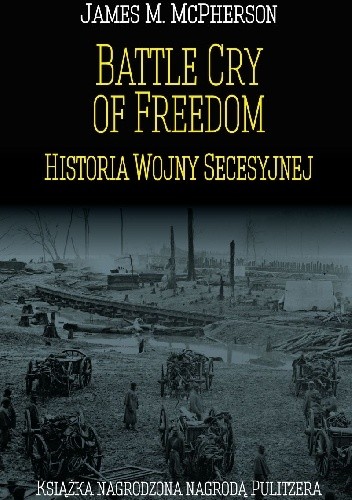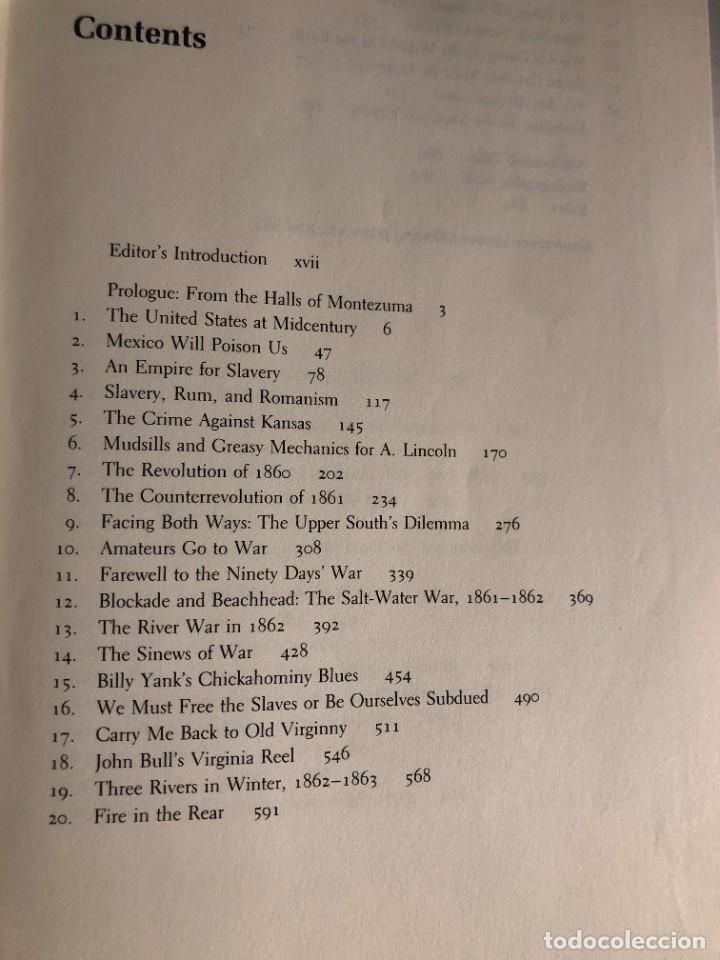

Slowly, slowly the remote possibility became horrible actuality and So it must have seemed to most Americans at the time. Society, certainly, and a violent one, but not one in which so appalling a phenomenon as civil war is likely. This is not only an account of the Civil War, it is a volume in the Oxford History of the United States, and so it begins with a masterly description of the republic at midcentury - a divided The book is opened with equal, though less obtrusive, skill. Lincoln's sudden disappearance from the book gives us something of the shock that his contemporaries felt when he died - and the author has no space at It is breathtaking,Īlmost insolent but it is right. McPherson is pressing on to describe the very last incidents of the war. In the next sentence a new chapter begins Good Friday, 1865, is already in the past and Mr. One moment the President is making a speech, with John Wilkes Booth snarling in the crowd (''Now, by God, I'll put him through. The supreme example is his omission of Lincoln's assassination. And though no one could write less like those ostentatiousĬivil War buffs (Bruce Catton springs to mind) whose prose is unrelentingly oratorical, at times he adds to the reader's pleasure either by quiet touches of humor or by literary contrivances so bold as to force themselves on ourĪttention. Important, whether military, political or economic, he yet manages to make everything he touches (say, Union finances or the prisoner-of-war camps) drive his narrative forward. Accounts of the Civil War usually sacrifice either detail (often important detail) to narrative flow, or narrative to detail. Is in a living relationship with everything else. Again and again, hopelessly knotty subjects (for example, Lincoln's relations with the radical Republicans) are painlessly made clear. Lee was dealt his first defeat,Īnd how West Virginia got its statehood. (these children's complaints are killers for adults), ''measles and mumps'' has a slightly ludicrous ring precisely because of that I shall never again forget how Robert E.

George McClellan took it in hand,īut I had never heard that in 1861, in the western Virginia theater of war, the Confederates suffered as badly because their farm-boy recruits went down with measles and mumps, to which they had never before been exposed. I was aware that the Army of the Potomac suffered shocking ill health (largely from bad sanitation) until Gen. Use precise details to bring the past, even the overfamiliar past, to vivid life again. Of these the greatest is surely his literary skill.

I can think of nothing else to complain about. And there never was such a place as the ''Kingdom of Palermo.'' South doth protest too much'' is a horrible solecism. The maps are accurate and intelligent, but they are printed on a gray ground that makes the gray lines and arrows of the Southern forces hard to see. I am conscientiously bound to report that it is not quite perfect. I was swept away,įeeling as if I had never heard the saga before. It is comprehensive yet succinct, scholarly without being pedantic, eloquent but unrhetorical.

It may actually be the best ever published. Treatment of its subject I have ever come across. It is therefore a particular pleasure to report that ''Battle Cry of Freedom'' easily overwhelms all such doubts. States history, one of the most written about in the history of the world. The Civil War is the most worked-over topic in United No doubt someone in the Library of Congress knows exactly how many books have been published on the Civil War, but everyone knows, without counting, why a new one is to be greeted somewhat warily. Section 7, Column 3 Book Review Deskīy HUGH BROGAN Hugh Brogan is the author of ''The Longman History of the United States of America.''īATTLE CRY OF FREEDOM The Civil War Era. February 14, 1988, Sunday, Late City Final Edition


 0 kommentar(er)
0 kommentar(er)
